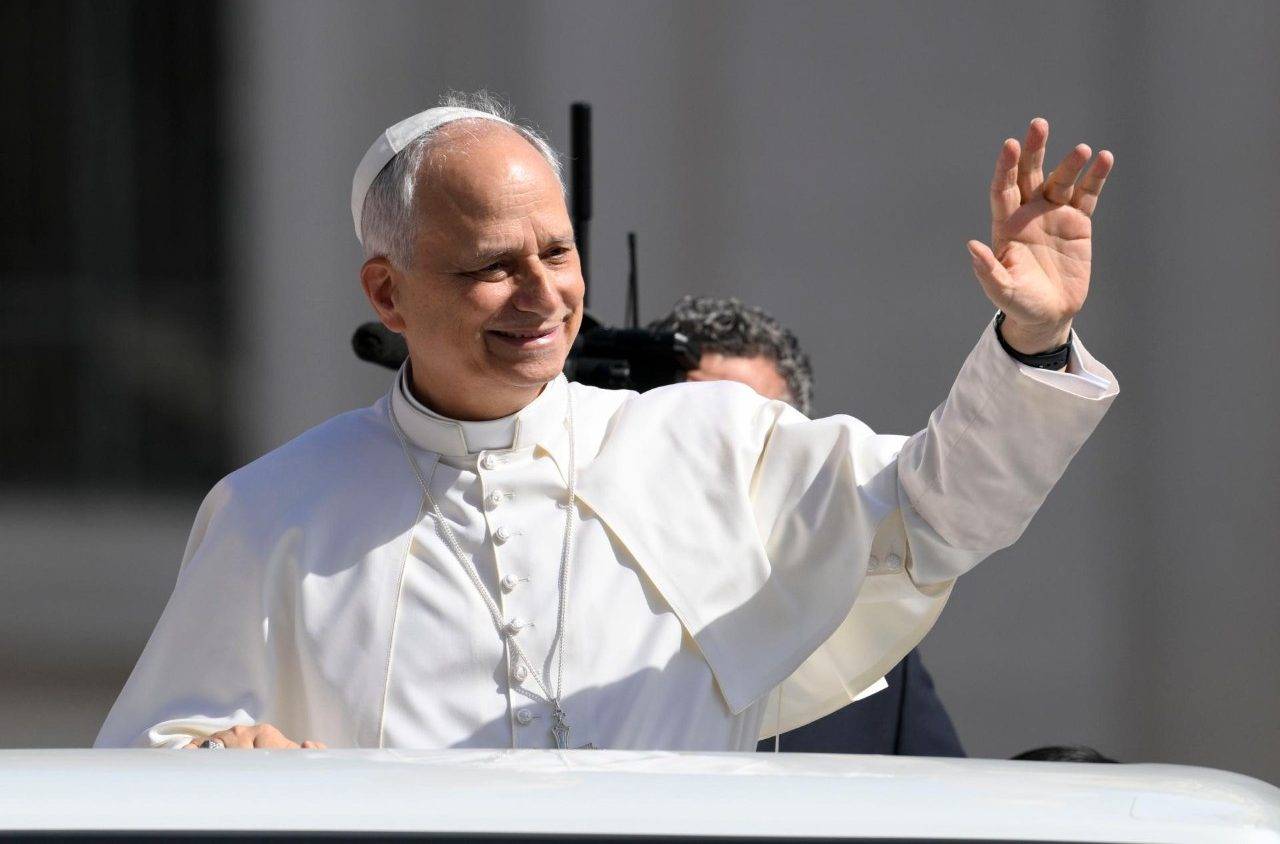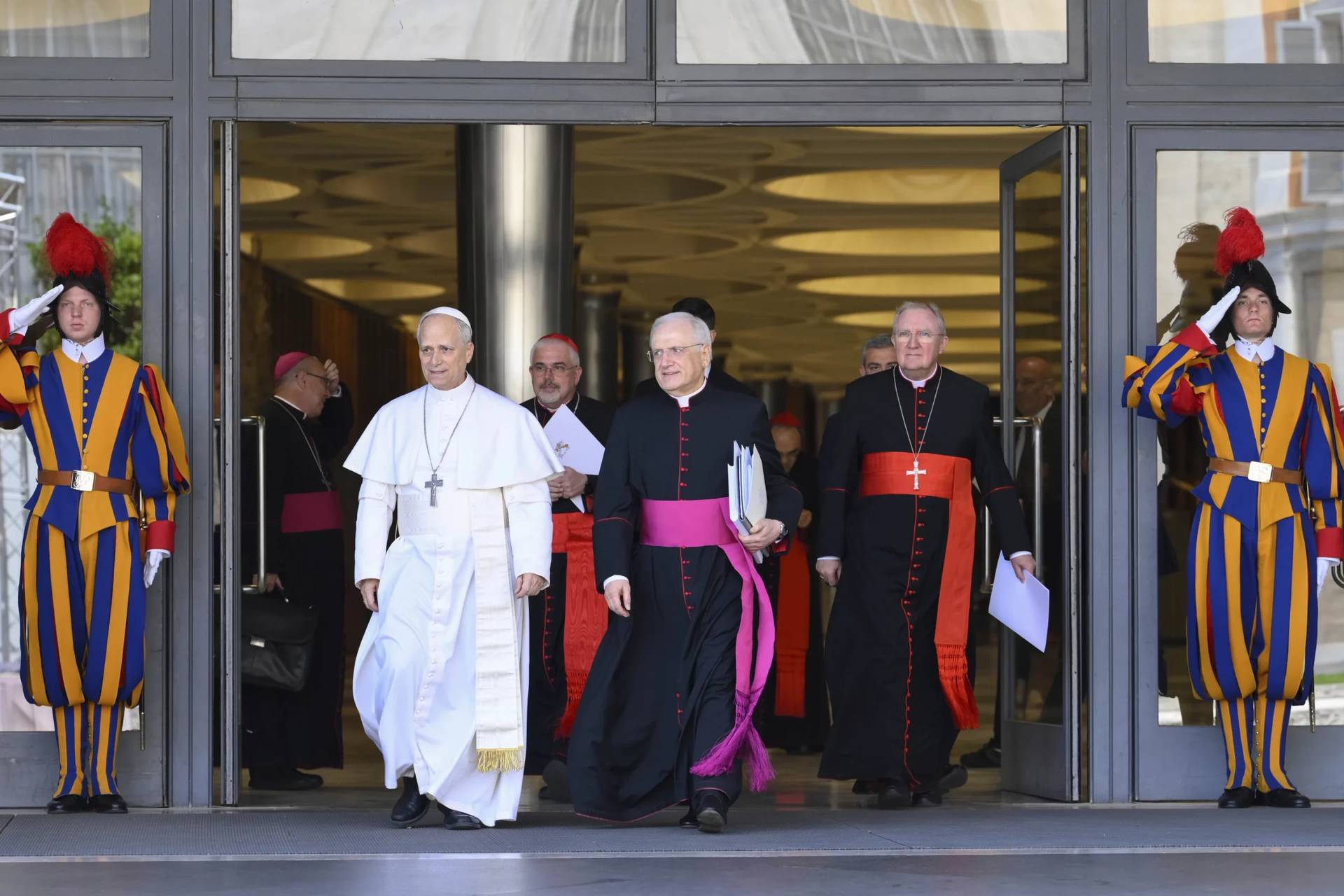ROME – Though Pope Francis will only be in Egypt this weekend for a little over 24 hours, the brief trip to the world’s sixth largest Muslim nation, and the biggest in the Middle East, nevertheless shapes up as one of the most complicated and riskiest of his papacy.
From security concerns to the labyrinthian politics awaiting him, Francis will face hard choices in Cairo from the moment he lands, at roughly 8:00 a.m. Eastern time on Friday until he leaves to return to Rome at 11:00 a.m. Eastern on Saturday.
Although the aims of the trip may be relatively straight-forward, the path to achieving them seems far less clear.
Security
While every papal outing generates concerns about the pontiff’s safety, that’s especially true for the April 28-29 visit to Egypt, which unfolds in the wake of the bombing of two Coptic Orthodox churches on Palm Sunday, one in the Nile Delta city of Tanta and the other in Alexandria, that left 45 people. The Islamic State claimed responsibility for those attacks.
Last week, Islamic State gunmen also attacked security forces at a checkpoint near the famous St. Catherine’s Monastery in the Sinai desert, killing a police officer and injuring three others.
As they always do, Vatican spokesmen are playing down any risks during the trip, expressing confidence in the local security forces.
“Security is an issue everywhere, not just in Egypt,” Vatican spokesman Greg Burke said this week. “Are we worried? I wouldn’t use the word ‘worry’. The security measures are similar to many trips. The Egyptians obviously want everything to go well.”
The risk may actually be less for Francis himself and more for Egypt’s Christian minority, which ranges somewhere between 10 and 20 million people, depending on which demographic estimates one accepts. It’s the largest Christian community in the Middle East, largely composed of members of the Coptic Orthodox Church led by Pope Tawadros II.
Not only are Christians in Egypt a frequent target of Islamic militants for the mere fact of being a religious minority, but politically they’re seen a solidly aligned behind the government of former army chief Abdel Fattah al-Sisi, who came to power in 2014 after the ouster of a Muslim Brotherhood-led government under Mohammed Morsi.
Supporters of al-Sisi recall that transition as the “June 30 revolution,” celebrating it as an expression of popular will, while adherents of the Muslim Brotherhood see it as a coup which led to the resumption of rule by the same military and political establishment that’s dominated Egypt since the era of Nasser.
The net result is that Christians are frequently at risk because of political as well as cultural or religious resentments. Many observers in Egypt fear that while Pope Francis is in the country, Christian sites and individuals may be at heightened risk from forces calculating that they may not be able to strike at the pontiff himself, but can reach other less well-defended targets.
Politics
Al-Sisi came into office vowing to protect the country’s Christian minority and to treat all Egyptians as full citizens regardless of their religious affiliation. He enjoyed the open backing of Egypt’s Christian leaders, and still draws widespread Christian support.
“I think most Christians are still supportive of President Sisi,” said Father Rafic Greiche, a Greek Melkite priest and spokesman for the country’s Catholic churches, in an April 11 interview with Crux.
Sisi has made a point of attending the Orthodox Christmas Mass every year at Cairo’s historic St. Mark’s Cathedral, having become the first Egyptian president in history to do so in 2015. Every year he draws raucous applause, and although Egypt is no stranger to stage-managed demonstrations of enthusiasm for political figures, the Christian response comes off as largely genuine.
This year during his visit to the cathedral, Sisi announced a project to build the largest mosque and church complex in Egypt in Cairo in 2018.
“God Has created us different…in religion, manner, color, language, habit, tradition…and no one can make us the all same,” he said in 2016 in brief remarks at the Christmas Mass, using the kind of language that non-Muslim Egyptians appreciate.
(Some Christians, however, charge that Sisi’s rhetoric is not always matched by action. Coptic Solidarity, an independent watchdog group, recently reported a rise in anti-Christian attacks during the past two years, including at least 30 cases of violence against Christians since the fall of 2016 alone.)
Sisi also presides over what expert Erik Trager at the Washington Institute for Near East Policy calls “certainly the most repressive [government] in Egypt’s contemporary history.”
According to Human Rights Watch, Sisi’s security forces have arrested tens of thousands and committed flagrant rights abuses, including torture, enforced disappearances, and likely extrajudicial executions. The group estimates that at least 41,000 people, and possibly as many as 60,000, are currently in Egyptian prisons for political reasons.
Pope Francis is a well-known supporter of human rights, and thus faces the challenge in Egypt of not wanting to embarrass his hosts or undercut the political position of local Christians who will have to live with the consequences of his visit long after he’s back in Rome, but also not wanting to appear to bestow legitimacy on a regime whose track record towards dissent is perceived as highly questionable.
Christian/Muslim relations
The overt purpose for Francis’s trip to Egypt is a Friday visit to Cairo’s Al-Azhar mosque and university, considered the most important center of learning in the Sunni Muslim world and sometimes dubbed the “Islamic Vatican.” While there, Francis will address an international conference on peace being sponsored by Al-Azhar.
This will be the second time a pope has visited Al-Azhar, after a stop by St. Pope John Paul II in 2000.
In recent years, the Vatican and Al-Azhar have seen themselves as partners in the struggle against religious violence and extremism. In May 2016, Sheikh Ahmed al-Tayeb, the Grand Ima of Al-Azhar, visited Pope Francis in the Vatican.
RELATED: Will Francis follow Benedict or Obama when he speaks to Muslims in Egypt?
“Our meeting is the message,” Francis told reporters on that occasion. In a statement, Al-Azhar said the purpose of the encounter was to “explore efforts to spread peace and co-existence”.
In February, a Vatican delegation led by French Cardinal Jean-Louis Tauran visited the mosque and university for a summit on “The role of al-Azhar al-Sharif and of the Vatican in countering the phenomena of fanaticism, extremism and violence in the name of religion,” using the institution’s formal name, which means “the honorable.”
Just ten days ago, in response to a spate of attacks on Christians, the Supreme Council of al Azhar scholars issued a statement insisting that “Sharia prohibits every kind of assault against human beings, regardless of their religion and belief,” and also that “Islam binds Muslims to protect all places of worship and to treat non-Muslims with kindness.”
Islamic scholars at Al-Azhar issue fatwas, or legal edicts, on disputes sent to them from across the Islamic world, and the university also trains imams not only for Egypt but for Sunni Muslim institutions around the world. As a result, the Vatican sees it as indispensable in terms of engaging Muslim thought and culture.
Yet some observers question the sincerity of Al-Azhar’s clerical leadership in genuinely promoting religious tolerance.
Coptic intellectual Naguib Gabriel, leader of the Egyptian Human Rights Union, charges that some courses at Al-Azhar foster Islamic triumphalism and breed the sort of attitudes that can lead to terroristic violence. He also notes that the university employs books and Arab language study courses that also force non-Muslim students to memorize verses of the Koran and the hadiths of the Prophet Mohammad.
When officials at Al-Azhar recently bristled at suggestions that their policies impose Islamic beliefs as normative, Egyptian writer Khaled Montasser called their reaction “the last nail of the coffin of the rule of law in Egypt.”
Another Egyptian writer and intellectual, Ashraf Ramelah, says that “Sisi is stifled in his efforts to expunge religious supremacy from Egypt without cooperation from Al-Ahzar, and apparently even with its assistance.”
For his part, Greiche expressed wariness about how much to expect from the Islamic scholars at Al-Azhar.
“Change comes very, very, very slowly, and often it’s just for show,” he said. “That’s my personal opinion, it’s not the opinion of the Church, but I know these people very, very well. It’s all for show, to show that they’re open, they’re people of dialogue, etc., but deep inside it’s not very true.”
RELATED: Egyptian Catholic says Muslim ‘establishment’ not serious about tolerance
Pope Francis thus will have to try to strike an appropriate balance between gratitude for the steps his Muslim hosts in Egypt have taken in the direction of tolerance and understanding, without inadvertently sending the signal that no work is left to be done.
Ecumenism
From the beginning of his papacy, Francis has been committed to the ecumenical cause, meaning the quest for unity among the various branches of the Christian family. One expression of that spirit has been a strong partnership with Patriarch Bartholomew of Constantinople, considered the “first among equals” among Orthodox leaders, who will join Francis in Cairo.
Francis’s last act Friday evening will be to pay a visit to Pope Tawadros II, leader of the country’s Coptic Orthodox Church, who has received numerous death threats from Islamic radicals and who was actually targeted by the Palm Sunday church bombing in Alexandria. (Tawadros had left the church shortly before the bomb exploded and was unharmed.)
In many ways, ecumenism in Egypt is a natural byproduct of the fact that Christians are a minority and perceive themselves to be more or less in the same boast vis-à-vis a sometimes hostile Islamic majority. The Catholic movement Focolare, for an instance, has a group in Egypt that’s composed of Latin-rite Catholics, members of various Eastern churches, and also Coptic Orthodox.
However, despite the ecumenical vibe, Christians in Egypt as elsewhere remain divided on several fronts. Christians in the country frequently express frustration, for instance, at the fact that they have different dates for major holy days such as Easter, projecting an image of disunity to the country’s Muslim majority.
Francis will therefore face pressure on this trip to deliver a concrete expression of common cause among Christians, without further aggravating impressions among some Catholic traditionalists that he’s already too willing to sacrifice core principles of Catholic identity for the sake of dialogue and outreach.

















